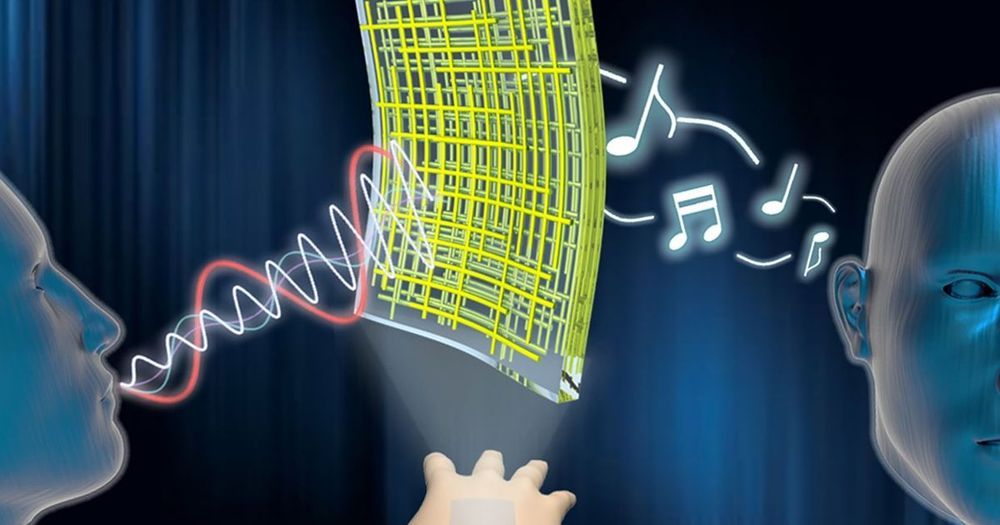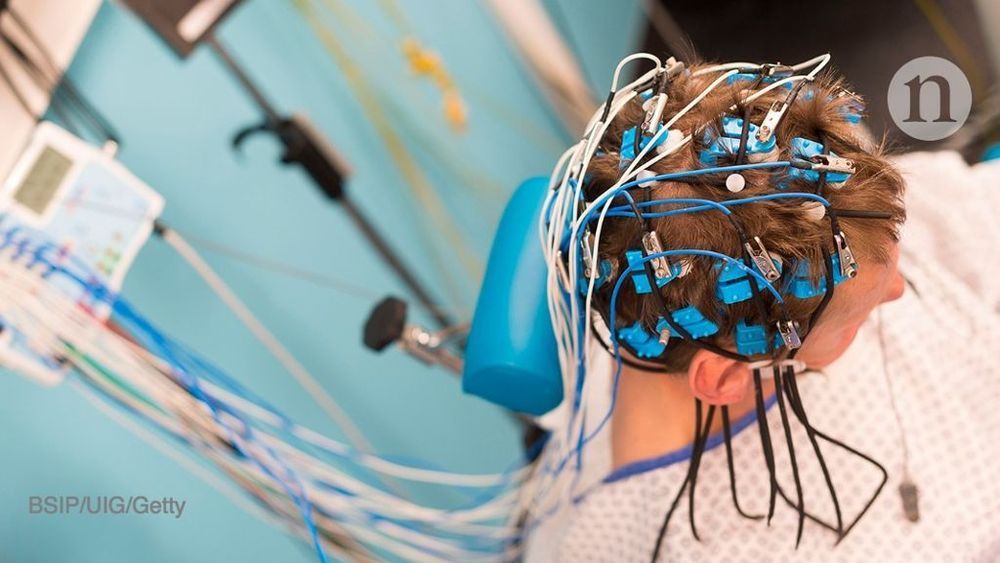Page 9142
Jan 20, 2019
India Is Launching the Largest Basic Income Experiment in History
Posted by Genevieve Klien in category: economics
An Indian state is launching what some are calling the most ambitious basic income program in history.
Jan 20, 2019
Bees May Understand Zero, a Concept That Took Humans Millennia to Grasp
Posted by Mary Jain in categories: mathematics, robotics/AI
Brief mention of AI implications…
As a mathematical concept, the idea of zero is relatively new in human society—and indisputably revolutionary. It’s allowed humans to develop algebra, calculus and Cartesian coordinates ; questions about its properties continue to incite mathematical debate today. So it may sound unlikely that bees — complex and community-based insects to be sure, but insects nonetheless — seem to have mastered their own numerical concept of nothingness.
Despite their sesame-seed-sized brains, honey bees have proven themselves the prodigies of the insect world. Researcher has found that they can count up to about four, distinguish abstract patterns, and communicate locations with other bees. Now, Australian scientists have found what may be their most impressive cognitive ability yet: “zero processing,” or the ability to conceptualize nothingness as a numerical value that can be compared with more tangible quantities like one and two.
Continue reading “Bees May Understand Zero, a Concept That Took Humans Millennia to Grasp” »
Jan 20, 2019
These tiny swimming robots may deliver drugs in blood vessels
Posted by Genevieve Klien in categories: biotech/medical, nanotechnology, robotics/AI
Scientists have developed tiny elastic robots that can change shape depending on their surroundings and can swim through fluids, an advance which may help deliver drugs to diseased tissue one day.
The smart, biocompatible microrobots that are highly flexible are made of hydrogel nanocomposites that contain magnetic nanoparticles allowing them to be controlled via an electromagnetic field.
As a result, these devices are able to swim through fluids and modify their shape when needed. They can also pass through narrow blood vessels and intricate systems without compromising on speed or manoeuvrability, said the group of scientists led by Selman Sakar at Ecole Polytechnique Fédérale de Lausanne (EPFL) and Bradley Nelson at ETH Zurich.
Continue reading “These tiny swimming robots may deliver drugs in blood vessels” »
Jan 20, 2019
Alaska woman with MS says stem-cell treatment has left her ‘practically symptom-free’
Posted by Genevieve Klien in categories: biotech/medical, neuroscience
A young mother from Anchorage, Alaska, who was diagnosed with multiple sclerosis (MS) more than 10 years ago says an experimental stem-cell treatment has left her “practically symptom-free.”
Amanda Loy was 27 years old when she was first diagnosed with the disease, which typically affects the brain and spinal cord, also known as the central nervous system. MS can be debilitating and there is currently no cure, according to the Multiple Sclerosis International Federation.
ACTRESS SELMA BLAIR, 46, REVEALS MS DIAGNOSIS: ‘I AM DISABLED’
Jan 20, 2019
Pioneering brain study reveals ‘software’ differences between humans and monkeys
Posted by Xavier Rosseel in categories: biotech/medical, neuroscience
Neuroscientists have for the first time discovered differences between the ‘software’ of humans and monkey brains, using a technique that tracks single neurons.
They found that human brains trade off ‘robustness’ — a measure of how synchronized neuron signals are — for greater efficiency in information processing. The researchers hypothesize that the results might help to explain humans’ unique intelligence, as well as their susceptibility to psychiatric disorders. The findings were published in Cell on 17 January.
Scientists say that this type of unusual study could help them to better translate research in animal models of psychiatric diseases into the clinic.
Jan 20, 2019
Flexible Loudspeaker Made of Nanowires Will Stick to Your Skin and Play Music
Posted by James Christian Smith in categories: media & arts, nanotechnology

Now researchers at Ulsan National Institute of Science and Technology (UNIST) in South Korea have made a nanomembrane out of silver nanowires to serve as flexible loudspeakers or microphones. The researchers even went so far as to demonstrate their nanomembrane by making it into a loudspeaker that could be attached to skin and used it to play the final movement of a violin concerto—namely, La Campanella by Niccolo Paganini.
Researchers in South Korea made a tiny loudspeaker, and then used it to play a violin concerto.
Continue reading “Flexible Loudspeaker Made of Nanowires Will Stick to Your Skin and Play Music” »
Jan 20, 2019
China pharma must swallow that jagged little pill called R&D as government slashes profit margins of generic drugs
Posted by Derick Lee in categories: biotech/medical, government, policy
As Beijing’s pilot reform spreads nationwide to cut prices of drugs and improve their efficacy and safety, companies are under mounting pressure to invest in innovative drugs development and reduce reliance on low profit products that are the same copies of original drugs.
New policy environment demanding cheaper drugs adds pressure to innovate.
Jan 20, 2019
Why SoftBank’s Masayoshi Son is Silicon Valley’s power broker
Posted by Klaus Baldauf in categories: Elon Musk, robotics/AI
Billionaire Masayoshi Son–not Elon Musk, Jeff Bezos, or Mark Zuckerberg–has the most audacious vision for an AI-powered utopia where machines control how we live. And he’s spending hundreds of billions of dollars to realize it. Are you ready to live in Masa World?
[Illustration: Señor Salme]
Jan 19, 2019
Evolution calls on us to lose weight slowly over time
Posted by Nicholi Avery in categories: energy, evolution, food, health, neuroscience
| Local | http://idahostatejournal.com/ Cutting calories (dieting) and increasing caloric expenditure (exercise) cause your brain to activate neurons that will not allow you to utilize fat or lose weight.
Recently, and at a most appropriate time, another study published in the journal eLife has given explanation as to why your current New Year’s Resolution diet will not work.
Cutting calories (dieting) and increasing caloric expenditure (exercise) cause your brain to activate neurons that will not allow you to utilize fat or lose weight.
Continue reading “Evolution calls on us to lose weight slowly over time” »
















